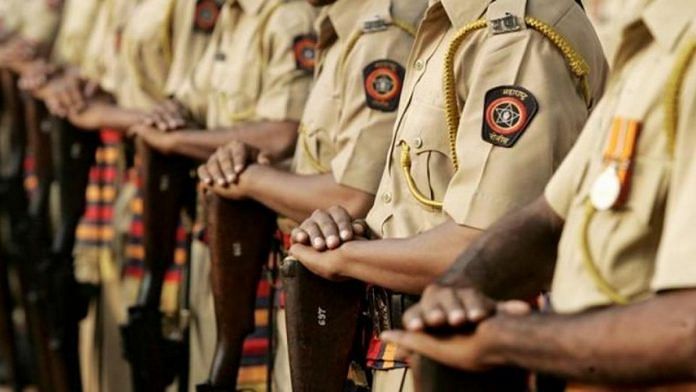New Delhi: Discussing how police reforms still remain a distant dream even after the 2006 Supreme Court judgment on it, members of the Indian Police Foundation (IPF), a multi-disciplinary think tank, Tuesday made an appeal to implement these reforms at the earliest.
“There were great expectations that changes would usher in a new era for the police and make it people-friendly. The Rulers’ Police would metamorphose into People’s Police,” the Foundation said in an appeal during an online event on its fifth anniversary.
“Fourteen years have passed since the judgment was delivered and the transformational changes are not to be seen yet. The Supreme Court has been monitoring the implementation of its directions, but obviously, these have not been effective,” it said.
Also read: Can changes in British-era IPC alter police attitude towards people or more reforms needed?
‘Trust deficit in police’
Delivering the IPF Foundation Day lecture on how reforms in police and criminal justice are crucial to safeguarding democratic rights of citizens, Justice Madan B. Lokur, former Supreme Court judge, said that unless the police is reformed in line with the top court directions, there will be instances wherein FIRs (First Information Report) are not lodged, investigations carried out are shoddy and justice is delayed.
Justice Lokur also said that often there are instances of shoddy investigation by the police, or complaints of non-registration of FIR. These complaints, he said, are because the police are overworked. He, however, added that “this cannot be used as an excuse”.
Citing figures, Lokur said that in 2019, Delhi reported three lakh cases of crime, including one rape case every four hours.
“On an average, each police station is handling 1,500 cases excluding backlog. With this kind of pressure, the police are bound to make mistakes and carry out a shoddy investigation. But something must be done to fix it and the answer is police reforms. Else you will end up with hundreds of cases with shoddy investigation and hence an unfair trial,” he said.
Justice Lokur pointed out that according to the United Nations suggestions, there should be 222 police officers per one lakh people, but in India, there are 144 policemen for every one lakh people.
He further stated that there is a massive “trust deficit” in policemen. “There are reports suggesting that 29 per cent of respondents trust police, 55 per cent believe they are corrupt and custodial deaths are a concern which needs to be dealt with,” he said.
Also read: Covid is India’s big chance to fix police – from blunt force instrument to civilian service
‘Police reforms linked to country’s progress’
The appeal by the foundation stated that it was “very unfortunate” that none of the major political parties of the country have shown interest in police reforms.
“It seems they all find it convenient to use this instrument to subserve their political agenda,” the appeal said.
The appeal also said that police reforms are directly linked with the progress of the country.
“We cannot have a modern Indian state unless the police, which is the kingpin of the criminal justice system, is reorganized and restructured,” it said.
“Good law and order is the sine qua non for economic progress,” the foundation said.
The appeal further said that neither the Government of India nor the state governments have shown the required degree of interest in police reforms.
“The Supreme Court of India also needs to seriously and whole-heartedly monitor the implementation of its directions,” the appeal said.
Also read: Indian police academies need an upgrade, must go beyond old drill-based training
What SC judgment says
The Supreme Court issued a judgment on police reforms on 22 September 2006, but despite clear instructions, the recommendations have still not been fully implemented.
In its verdict, the top court had directed setting up of three new institutions — State Security Commission to insulate the police from outside pressure, Police Establishment Board to give autonomy to police officers in personnel matters, and Police Complaints Authority to make the police more accountable.
The court had also prescribed a procedure for the appointment of Director General of Police and the separation of investigation of crime from law and order in the metropolitan towns.
None of it was, however, implemented.
Also read: Who will watch the watchmen? How my guidelines helped SC put down laws for police action
Loss in GDP due to poor law & order
During the discussion, retired IPS officer Prakash Singh, a key architect of police reforms in India, pointed to the “extraneous factors” on the police to bring down crime rate, leading to shoddy investigations and non-registration of cases.
“When I was in UP, an order came from the home department that crime should be brought down by 50 per cent. Few decades later, one CM said that it should be brought down by 70 per cent. Several IPS officers were suspended for not doing it,” he said.
“Chief ministers tell DGs that the crime should be controlled so that the opposition doesn’t raise issues in the assembly. That is the problem,” he added.
During the discussion, Singh also said that the cost of an incompetent police is higher crime rate, bad internal security situation, and increase in incidents of terrorism and insurgency.
Nine per cent of GDP, Singh said, is lost every year because of poor law and order.
“The police are the central pillar of the criminal justice system and if that is not improved other organs of the system will not be able to work efficiently. It must be revived, strengthened, restructured, reformed,” he said.
Also read: How AI can be used in policing to reform criminal justice system



